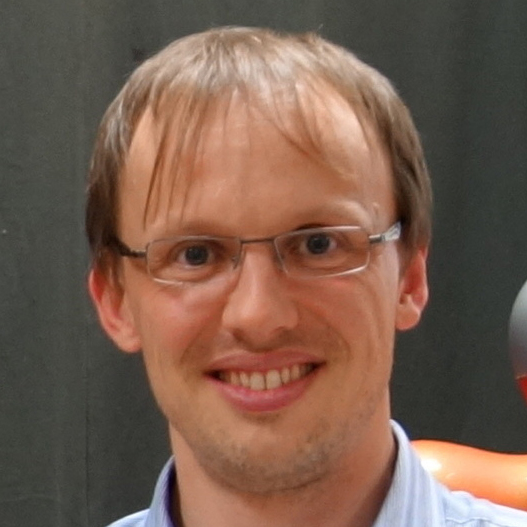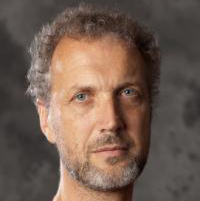
May 26th - 30th, 2015
ICRA 2015
Washington State Convention Center
Seattle, Washington
Photo copyright by Wikipedia
| Time Slot | Event | Title |
|---|---|---|
| 13:20 - 13:50 | Opening and Introduction by Organizers
Mohammad Khansari, Stanford University Oussama Khatib, Stanford University |
On Necessity of Bridging the Gap Between Learning and Control Working with the New Robots |
| 13:50 - 14:20 | First Keynote Speaker: Neville Hogan, Massachusetts Institute of Technology | Optimizing Dynamic Primitives for Physical Interaction |
| 14:20 - 14:30 | Poster Teasers, click to see the list of accepted contributions | |
| 14:30 - 15:00 | Second Keynote Speaker: Stefan Schaal, University of Southern California | Learning and Manipulation in Sensor Rich Environments |
| 15:00 - 15:30 | Poster Session & Coffee Break | |
| 15:30 - 16:00 | Third Keynote Speaker: Alin Albu-Schäffer, DLR Institute of Robotics and Mechatronics | Tackling Complexity of Service Tasks by Compliance Control and Learning |
| 16:00 - 17:00 | Panel Discussion opened by Short Talks from Panel Members: Alin Albu-Schäffer, DLR Institute of Robotics and Mechatronics Jan Babic, Jozef Stefan Institute Neville Hogan, Massachusetts Institute of Technology Matthew Howard, King’s College London Oussama Khatib, Stanford University Stefan Schaal, University of Southern California |
|
| 17:00 - 17:15 | Wrap up and closing |

|
Alin Albu-ShafferAlin Albu-Schaffer graduated in electrical engineering at the Technical University of Timisoara, in 1993 and got the PhD in automatic control from the Technical University of Munich in 2002. Since 2012 he is the head of the Institute of Robotics and Mechatronics at the German Aerospace Center, which he joint in 1995 as a PhD candidate. Moreover, he is a professor at the Technical University of Munich, holding the Chair for “Sensorbased Robotic Systems and Intelligent Assistance Systems” at the Computer Science Department. His personal research interests include robot design, modeling and control, flexible joint and variable compliance robots for manipulation and locomotion, physical human-robot interaction, bio-inspired robot design. He received several awards, including the IEEE King-Sun Fu Best Paper Award of the Transactions on Robotics in 2012; several ICRA and IROS Best paper Awards as well as the DLR Science Award. |

|
Jan BabicJan Babic is a Senior Researcher at JoE>ef Stefan Institute, Slovenia and an Assistant Professor at Faculty of Electrical Engineering, University of Ljubljana, Slovenia. He received his PhD examining the role of biarticular muscles in human locomotion. During the years 2006/2007 he was a visiting researcher at ATR Computational Neuroscience Laboratories in Japan.In November 2014 he was a visiting professor at The Institute for Intelligent Systems and Robotics, University of Pierre and Marie Curie in France. His current research is particularly concerned with the understanding how human brain controls movement of the body. He is using these neurophysical models to design biologically plausible solutions for a broad spectrum of robotic systems such as industrial robots, humanoids, exoskeletons and rehabilitation devices. |

|
Neville HoganNeville Hogan is Professor of Mechanical Engineering and Professor of Brain and Cognitive Sciences at the Massachusetts Institute of Technology (MIT). He received the Diploma in Engineering (with distinction) from Dublin Institute of Technology in Ireland, and M.S., Mechanical Engineer and Ph.D. degrees from MIT. Following industrial experience in engineering design, he joined MIT's faculty in 1979 and has served as Head and Associate Head of the MIT Mechanical Engineering Department's System Dynamics and Control Division. He is presently Director of the Newman Laboratory for Biomechanics and Human Rehabilitation and a founder and director of Interactive Motion Technologies, Inc. Professor Hogan's research interests include robotics, sensory-motor neuroscience, and rehabilitation engineering, emphasizing the control of physical contact and dynamic interaction. He serves on the editorial boards of IEEE Transactions on Neural Systems and Rehabilitation Engineering, the Journal of Motor Behavior and the Journal of Healthcare Engineering. He has been awarded Honorary Doctorates from Delft University of Technology and Dublin Institute of Technology; the Silver Medal of the Royal Academy of Medicine in Ireland; the Henry M. Paynter Outstanding Investigator Award, and the Rufus T. Oldenburger Medal from the Dynamic Systems and Control Division of the American Society of Mechanical Engineers. |

|
Matthew HowardMatthew Howard is a lecturer at the Centre for Robotics Research, Dept. Informatics, King's College London. Prior to joining King's, he held a Japan Society for Promotion of Science fellowship at the Department of Mechanoinformatics at the University of Tokyo. From 2009-2012 he was a research fellow at the University of Edinburgh involved in the EU-FP7 STIFF project, and obtained his PhD in 2009 at Edinburgh with award of an EPSRC CASE scholarship, sponsored by Honda Research. His research interests include statistical machine learning and adaptive control, programming by demonstration, forward and inverse optimal control, design of variable impedance devices, EMG-based robot control and teleimpedance, and exploiting variable physical stiffness and damping for explosive movement. |

|
Oussama KhatibOussama Khatib received his Doctorate degree in Electrical Engineering from Sup’Aero, Toulouse, France, in 1980. He is Professor of Computer Science at Stanford University. His work on advanced robotics focuses on methodologies and technologies in human-centered robotics including humanoid control architectures, human motion synthesis, interactive dynamic simulation, haptics, and human- friendly robot design. He is Co-Editor of the Springer Tracts in Advanced Robotics series, and has served on the Editorial Boards of several journals as well as the Chair or Co-Chair of numerous international conferences. He co-edited the Springer Handbook of Robotics, which received the PROSE Award. He is a Fellow of IEEE and has served the Robotics and Automation Society (RAS) as a Distinguished Lecturer, as a member of the Administrative Committee, and as the Program Chair of IEEE International Conference on Robotics and Automation in 2000. He is the President of the International Foundation of Robotics Research (IFRR) and a recipient of the Japan Robot Association (JARA) Award in Research and Development. He also received the 2010 IEEE RAS Pioneer Award in Robotics and Automation for his fundamental pioneering contributions in robotics research, visionary leadership, and life-long commitment to the field. |

|
Stefan SchaalStefan Schaal is Professor of Computer Science, Neuroscience, and Biomedical Engineering at the University of Southern California, and a Founding Director of the Max-Planck-Insitute for Intelligent Systems in Tuebingen, Germany. He is also an Invited Researcher at the ATR Computational Neuroscience Laboratory in Japan, where he held an appointment as Head of the Computational Learning Group during an international ERATO project, the Kawato Dynamic Brain Project (ERATO/JST). Prof. Schaal's research interests include topics of statistical and machine learning, neural networks, computational neuroscience, functional brain imaging, nonlinear dynamics, nonlinear control theory, and biomimetic robotics. He applies his research to problems of artificial and biological motor control and motor learning, focusing on both theoretical investigations and experiments with human subjects and anthropomorphic robot equipment. Dr. Schaal has co-authored over 300 papers in refereed journals and conferences. He is a co-founder of the "IEEE/RAS International Conference and Humanoid Robotics", and a co-founder of "Robotics Science and Systems", a highly selective new conference featuring the best work in robotics every year. Dr. Schaal served as Program Chair at these conferences and he was the Program Chair of "Simulated and Adaptive Behavior" (SAB 2004) and the "IEEE/RAS International Conference on Robotics and Automation" (ICRA 2008). Dr. Schaal serves on the editorial board of the journals "Neural Networks", "International Journal of Humanoid Robotics", and "Frontiers in Neurorobotics". |